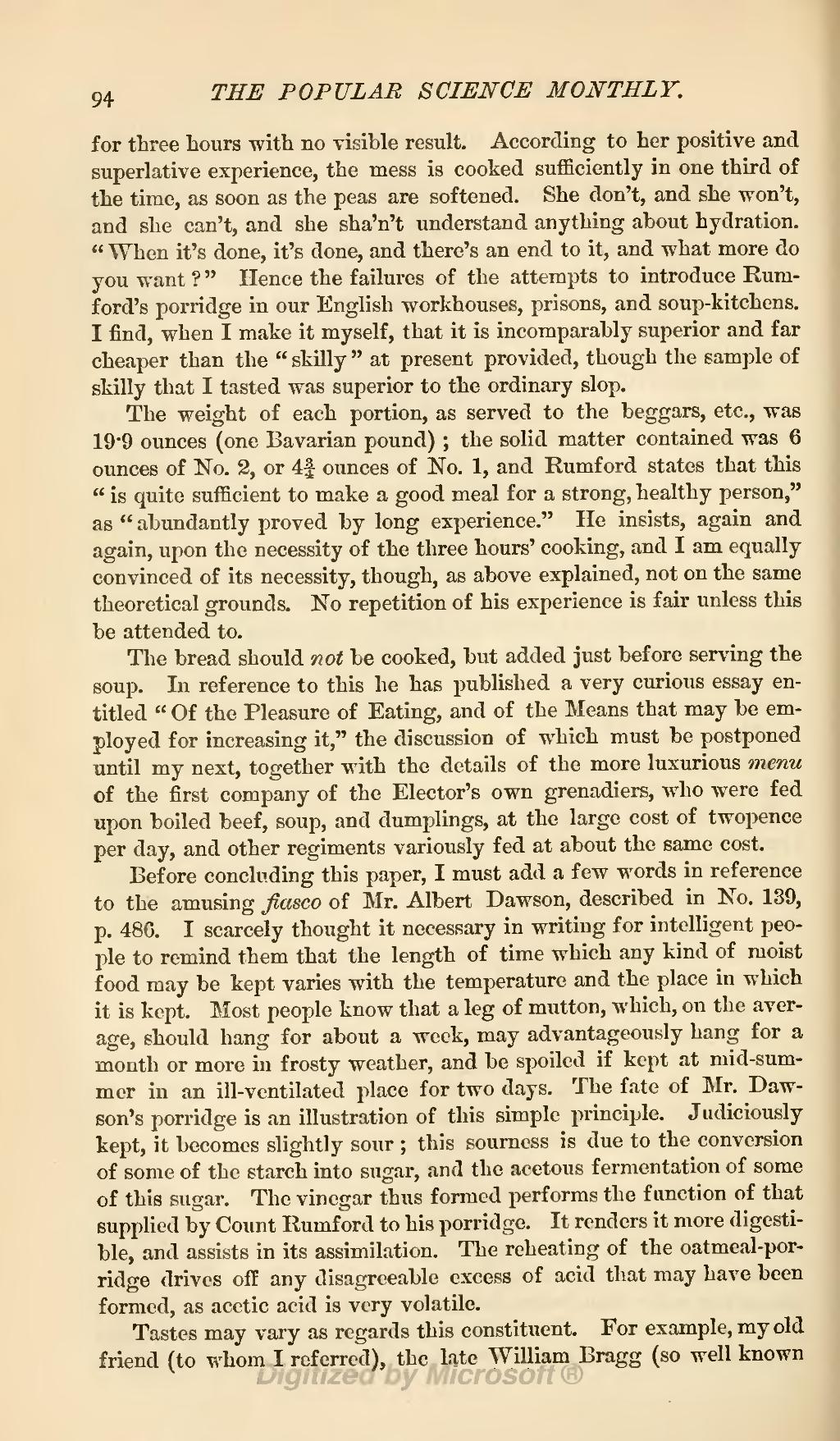for three hours with no visible result. According to her positive and superlative experience, the mess is cooked sufficiently in one third of the time, as soon as the peas are softened. She don't, and she won't, and she can't, and she sha'n't understand anything about hydration. "When it's done, it's done, and there's an end to it, and what more do you want?" Hence the failures of the attempts to introduce Rumford's porridge in our English workhouses, prisons, and soup-kitchens. I find, when I make it myself, that it is incomparably superior and far cheaper than the "skilly" at present provided, though the sample of skilly that I tasted was superior to the ordinary slop.
The weight of each portion, as served to the beggars, etc., was 19•9 ounces (one Bavarian pound); the solid matter contained was 6 ounces of No. 2, or 43⁄4 ounces of No. 1, and Rumford states that this "is quite sufficient to make a good meal for a strong, healthy person," as "abundantly proved by long experience." He insists, again and again, upon the necessity of the three hours' cooking, and I am equally convinced of its necessity, though, as above explained, not on the same theoretical grounds. No repetition of his experience is fair unless this be attended to.
The bread should not be cooked, but added just before serving the soup. In reference to this he has published a very curious essay entitled "Of the Pleasure of Eating, and of the Means that may be employed for increasing it," the discussion of which must be postponed until my next, together with the details of the more luxurious menu of the first company of the Elector's own grenadiers, who were fed upon boiled beef, soup, and dumplings, at the large cost of twopence per day, and other regiments variously fed at about the same cost.
Before concluding this paper, I must add a few words in reference to the amusing fiasco of Mr. Albert Dawson, described in No. 139, p. 486. I scarcely thought it necessary in writing for intelligent people to remind them that the length of time which any kind of moist food may be kept varies with the temperature and the place in which it is kept. Most people know that a leg of mutton, which, on the average, should hang for about a week, may advantageously hang for a month or more in frosty weather, and be spoiled if kept at mid-summer in an ill-ventilated place for two days. The fate of Mr. Dawson's porridge is an illustration of this simple principle. Judiciously kept, it becomes slightly sour; this sourness is due to the conversion of some of the starch into sugar, and the acetous fermentation of some of this sugar. The vinegar thus formed performs the function of that supplied by Count Rumford to his porridge. It renders it more digestible, and assists in its assimilation. The reheating of the oatmeal-porridge drives off any disagreeable excess of acid that may have been formed, as acetic acid is very volatile.
Tastes may vary as regards this constituent. For example, my old friend (to whom I referred), the late William Bragg (so well known

